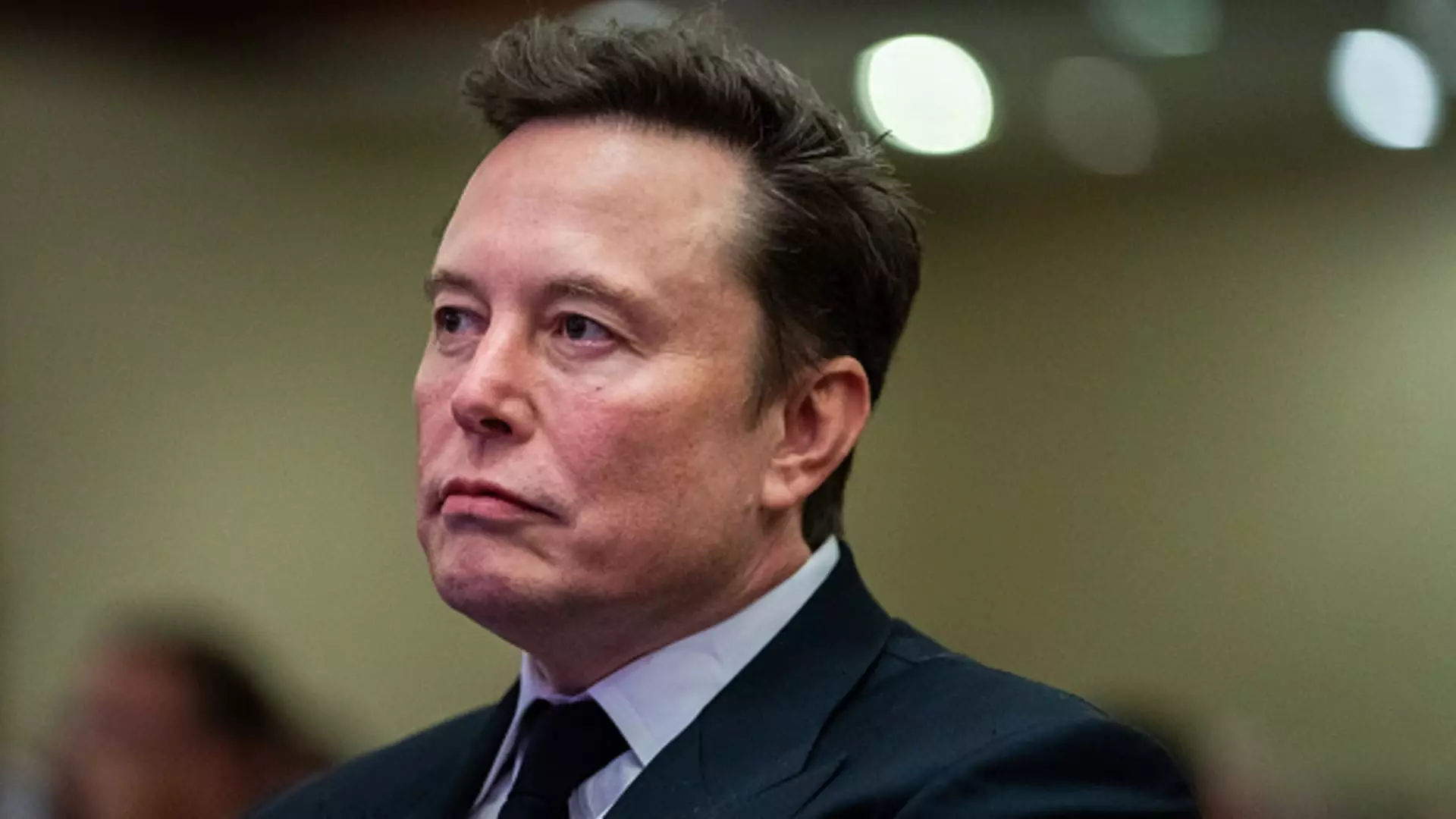In a recent revelation that has sent shockwaves through the investment and tech communities, Elon Musk disclosed via social media that the Securities and Exchange Commission (SEC) had issued a settlement demand. This precarious situation, described in a letter authored by his attorney, Alex Spiro, indicates that the SEC is pressuring Musk to settle allegations of securities fraud concerning his transactions involving Twitter shares. Given Musk’s high-profile persona and how this case connects to his business ventures, the scrutiny surrounding him is likely to deepen.
Musk’s social media post was emblematic of his unconventional approach to communication, replete with emojis and a caricature he commissioned, poking fun at SEC Chair Gary Gensler. This not only underscores Musk’s propensity for irreverence but also highlights the tension between tech innovators and regulatory bodies. In sending this demand, the SEC is attempting to assert its regulatory reach, while Musk’s reaction serves as a reminder of his defiant nature when challenged by authorities.
The SEC’s investigation appears to stem from Musk’s financial maneuvers in 2022, during which he sold significant amounts of Tesla shares while simultaneously accumulating a stake in Twitter, an action that many interpreted as preparatory for his eventual takeover of the platform, now rebranded as X. With Musk at the helm of several high-profile companies—Tesla, SpaceX, and X—the agency’s scrutiny is consistent with its mandate to enforce securities laws, especially in cases involving individuals with as much influence as Musk.
However, there is a notable complexity in how Musk’s actions have been interpreted. While the intention behind his transactions may not be straightforward, the implications for other investors are severe. The SEC’s inquiry into possible securities fraud reflects a broader concern about compliance in the fast-paced world of technology, where significant transactions can have ripple effects on market stability and shareholder integrity.
According to Spiro’s detailed letter, the SEC set an aggressive timeline for Musk to respond to their allegations, initially suggesting a mere 48-hour window for settling the matter or facing criminal charges. However, sources close to the situation have asserted that this timeline was overstated, indicating the SEC had granted Musk additional time. This confusion raises questions about the SEC’s procedural clarity and highlights Musk’s continuous battle against what he characterizes as relentless harassment from the agency.
Musk’s legal counsel has persuasively argued that the SEC’s actions are emblematic of a longstanding pattern of harassment, citing investigations dating back over six years, including a recent probe into Neuralink, another company Musk is associated with. Spiro’s letter articulates a feeling of persecution that Musk has felt, suggesting that the SEC has crossed ethical boundaries in its pursuit of him. The demand for clarity on whether these actions were directed by higher-ups, specifically the White House, seeks to shed light on potential politicization within regulatory frameworks.
This is not the first time Elon Musk has found himself in hot water with the SEC. In 2018, he faced charges for tweeting that he had “funding secured” to take Tesla private at an inflated price. This unprecedented claim led to significant backlash, resulting in Musk and Tesla each paying $20 million in fines and him relinquishing his position as chairman for a time. Resistance to SEC authority has only seemed to embolden Musk over the years, as he shifts more overtly into the political arena, including notable support for Republican initiatives.
Furthermore, Musk’s ongoing litigation stemming from his Twitter acquisition only complicates matters. The Oklahoma Firefighters Pension and Retirement System has sued him for allegedly concealing critical information regarding his investments leading to the buyout. This lawsuit is part of a broader narrative questioning transparency in Musk’s dealings, thus placing him under further scrutiny from regulatory bodies.
The situation involving Elon Musk and the SEC represents a pivotal moment not just for Musk but also for regulatory practices moving forward. As Musk continues to defy conventional boundaries in both his business and social media conduct, one must consider the implications for future entrepreneurial endeavors under the watchful eyes of regulatory authorities.
The unfolding drama encapsulates not just a power struggle between an iconic tech figure and a government agency but also reflects broader societal themes concerning business ethics, transparency, and accountability. Musk’s unique brand of defiance may well inspire others in the tech world, but the consequences of his confrontations with the SEC could alter the regulatory landscape for years to come. Amid this backdrop, stakeholders from all sides will be watching attentively as new developments surface in this complex saga.

